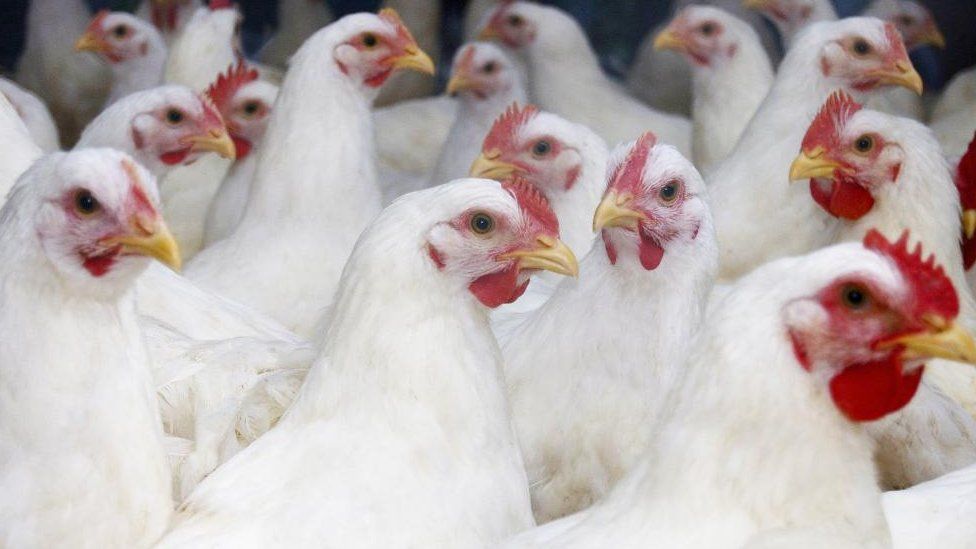ARTICLE AD BOX
 Image source, Getty Images
Image source, Getty Images
Fast-growing chickens are genetically-selected breeds that produce more meat.
By Claire Marshall and Malcolm Prior
BBC News Rural Affairs team
A legal challenge over the use of fast-growing chickens on farms in England has been dismissed in the high court.
Animal welfare campaigners had claimed the genetically-selected breeds - which they call 'Frankenchickens' - suffer serious health problems.
The court assessed claims the government misinterpreted welfare regulations in allowing farming of the chickens.
On Wednesday a judge dismissed the case.
Dr Marc Cooper, the RSPCA's head of farm animals, said the outcome represented "a significant failure to address the most pressing animal welfare issue of our time".
The RSPCA, which gave evidence at the hearing, says fast-growing chickens make up about 90% of the more than 1bn meat chickens - also known as broiler chickens - slaughtered each year in the UK.
The Humane League UK, which brought the legal challenge, said the legal system was "failing" fast-growing chickens.
"This country and its animals deserve far better," it added.
Animal welfare campaigners call them 'Frankenchickens' because they have been genetically-selected over decades to produce as much meat as possible, in the shortest possible time.
They reach slaughter weight within 34 to 36 days, with a growth speed said to be 12 weeks faster than it was 50 years ago.
Campaigners argue that the speed of growth means the chickens can suffer from a wide range of health and welfare issues, including heart attacks, lameness, bone deformities, muscle diseases, burns and organ failure.
The Humane League UK told the court that by allowing their use, the Department for Environment, Food and Rural Affairs (Defra) was breaching the Welfare of Farmed Animals (England) Regulations 2007.
The regulations set down detailed requirements on how farmed livestock, including meat chickens, should be kept.
The League had also challenged Defra's monitoring system for detecting welfare issues.
Image source, Claire Marshall
Image caption,George Ford has 1,500 pasture-raised slower-growing chickens
Campaigners point to higher-welfare methods of farming as an alternative, like that used by George Ford, who farms in Nempnett Thrubwell, just outside Bristol.
He rears 1,500 pasture-raised chickens, which are kept in mobile pens in a field. Mr Ford's chickens are a slower-growing variety, slaughtered when they are 77 to 80 days old.
Mr Ford says that fast-growing varieties of chicken are only used because of the pressure put on farmers to "drive down" the price.
"The producers have been squeezed and squeezed by the retailer to produce a product, cheaper and cheaper.
"They're at the point now where we've gone so extreme that they're growing and being slaughtered in 35 days. That's where it's wrong."
He said he does not believe any farmer would want to raise birds in such conditions, but that they are forced to due to low prices.
A Defra spokesperson said the government welcomed the judgement and added: "Farm animals are protected by robust animal health and welfare laws, which include detailed requirements on how they should be kept.
"We will continue to work with the farming sector to maintain and enhance our high standards."

 1 year ago
66
1 year ago
66








 English (US) ·
English (US) ·